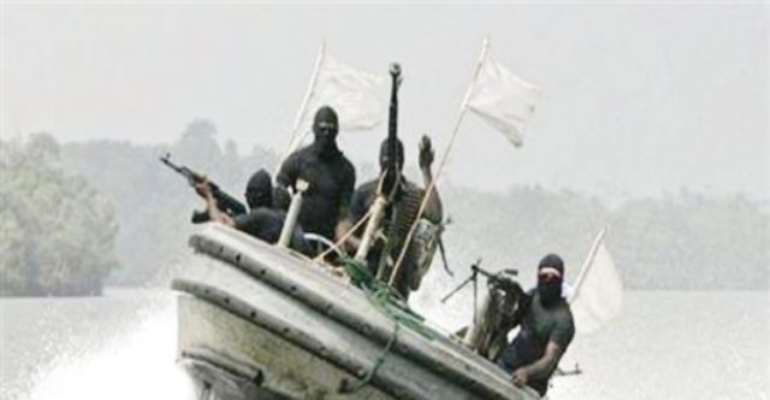MEND Says It Clashed With Soldiers

Nigeria's main militant group said its fighters clashed with soldiers in the creeks of the oil-producing Niger Delta on Thursday, but the military denied any such shoot-out had taken place.
The clash would be the first such unrest in the OPEC member nation's oil heartland for several months, following an amnesty for militants agreed with the government last year.
"There was a bloody confrontation at about 0030 hours ... between our fighters and men of the military Joint Task Force after one of our patrols ran into two gunboats of the JTF at Ogulagha in Delta state," the Movement for the Emancipation of the Niger Delta (MEND) said in a statement.
"A firefight ensued which lasted about 30 minutes," it said.
Military spokesman Lieutenant-Colonel Timothy Antigha said there had been no such incident anywhere in the Niger Delta.
"I can confirm to you that there have been no reports of any shooting incident between us and any armed gangs in the whole of the Niger Delta in the last 24 hours," he said.
"The only incident that happened yesterday was the arrest of some bunkerers and there was no shooting involved," he said. Bunkerers is a term used for thieves siphoning off crude oil supplies.
The Niger Delta, home to Africa's biggest oil and gas industry, is one of the world's largest wetlands, a vast network of mangrove creeks opening into the Gulf of Guinea.
There are often conflicting reports of clashes between militants and the security forces and independent verification is difficult to obtain.
Sub-Saharan Africa's second-biggest economy generates more than 85 percent of its revenues from oil. Insecurity in the delta in recent years has cut output and dented its finances.
It has also led some foreign oil companies to reconsider investment decisions, withdraw all but essential staff from the region and spend millions of dollars on security.
President Goodluck Jonathan has made reviving the amnesty programme begun by his late predecessor Umaru Yar'Adua one of his main priorities to try to ensure production stability.
 
